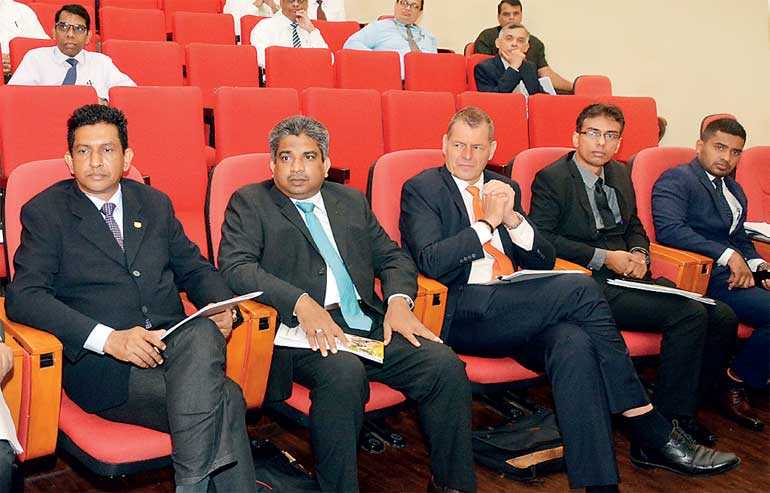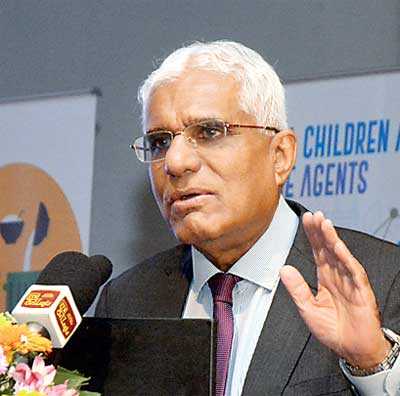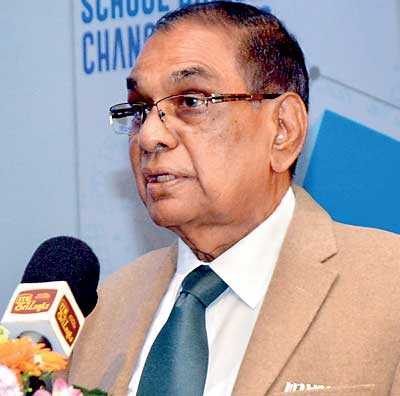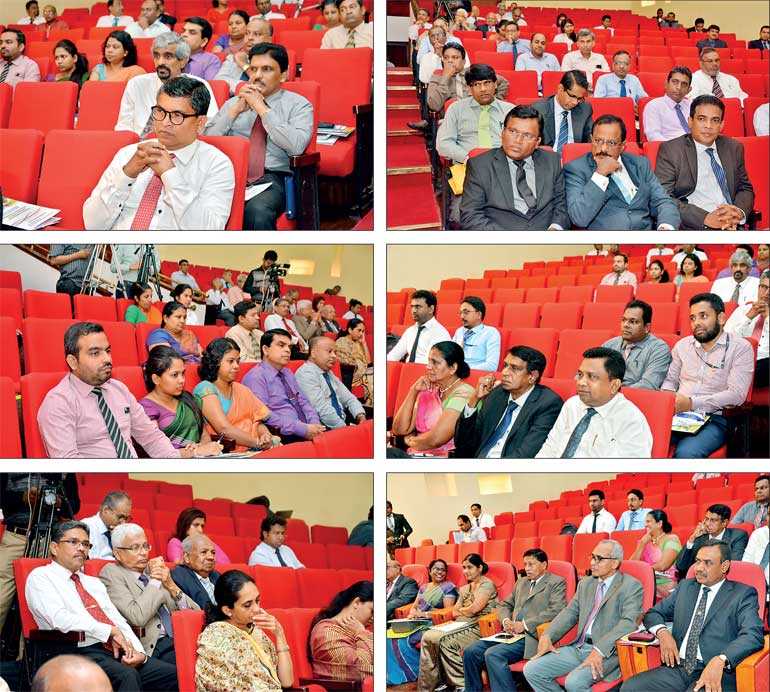Wednesday Mar 04, 2026
Wednesday Mar 04, 2026
Tuesday, 4 December 2018 01:19 - - {{hitsCtrl.values.hits}}

By Uditha Jayasinghe
To develop Small and Medium Enterprises (SMEs), Sri Lanka must crack the problem of market access, believes Central Bank Governor Dr. Indrajit Coomaraswamy, who also advocated a coordinated approach to improving exports to foster growth.
 |
Central Bank Governor Dr. Indrajit Coomaraswamy– Pic by Upul Abayasekera |
 |
North Western Province Governor K. C. Logeswaran |
Delivering the keynote address at a forum titled “Shaping the local economy through lessons learned”, organised by the Industrial Services Bureau last week, Dr. Coomaraswamy noted that if Sri Lanka was to uplift a significant section of the population, it would have to be done by through SME development.
“We have had many, many initiatives over the years. We have lots of institutions, but we need to coordinate and have a concentrated effort in four areas. Training, inputs including technology, access to finance, but for me, the most important is access to markets. We have put effort into production, training, and finance, but we haven’t done enough for markets. If we crack that problem, we will have a much more successful SME sector in this country,” he said.
Over the decades, not enough has been done to develop the supply chains, he pointed out, as there were insufficient storage facilities, refrigeration, and transport links. “STEM subjects and R&D need to be improved. We need to improve the framework to enhance product generation. This would mean improving the macroeconomic framework, general business environment, product market regulations, intensity of competition, openness to trade and foreign direct investment, business finance, the tax system, develop entrepreneurship, and infrastructure. All these need to work together to create the right eco system for rapid industrial development.”
Productivity remains a significant challenge. Export growth is a critical part of development for a country like Sri Lanka, butinconsistent and unpredictable policies by successive governments have hampered local companies, and prevented diversification of the export base and basket, together with high borrowings for infrastructure development over the last decade while Sri Lanka’s exports steadily declined from 33% of GDP in 2000 to 12% of GDP at present.
“So you can understand why we have a challenging situation, and why my hair has gotten even greyer in the last two and a half years,” the Governor quipped. To address Sri Lanka’s structural challenges, four frameworks have been put in place for improved macroeconomic policies to be created. The first is revenue enhancement-based fiscal consolidation to increase revenue up to 16% of GDP, which is slightly below 14% at present. The Central Bank has also presented a paper to the Finance Ministry to introduce fiscal rules, which is done by a number of countries, to target Budget deficit, debt and other indicators. However, Dr. Coomaraswamy acknowledged he was unaware if this paper would be implemented. The Governor also advocated giving the Fiscal Management Responsibility Act more teeth, to encourage governments to adhere to their fiscal targets.
“The Monetary Board has now taken a policy decision not to buy Treasury Bills. We will not print money for the Government. They have to manage on their own. We are trying to amend the Monetary Law Act so that the law itself does not commit the Central Bank to print money for the Government. The Government has to run a disciplined Budget, because that has been the main source of instability in our system. So we have to sort that out, and the Central Bank can help out with some tough love.”
Amendments to the Monetary Law Act received Cabinet approval earlier this year. Dr. Coomaraswamy said the Central Bank would remain committed to ensuring an orderly depreciation of the rupee, and emphasised that past efforts to defend a specific rate had only resulted in the spending of reserves, which Sri Lanka could now ill afford to do, given its pending high debt repayments.
